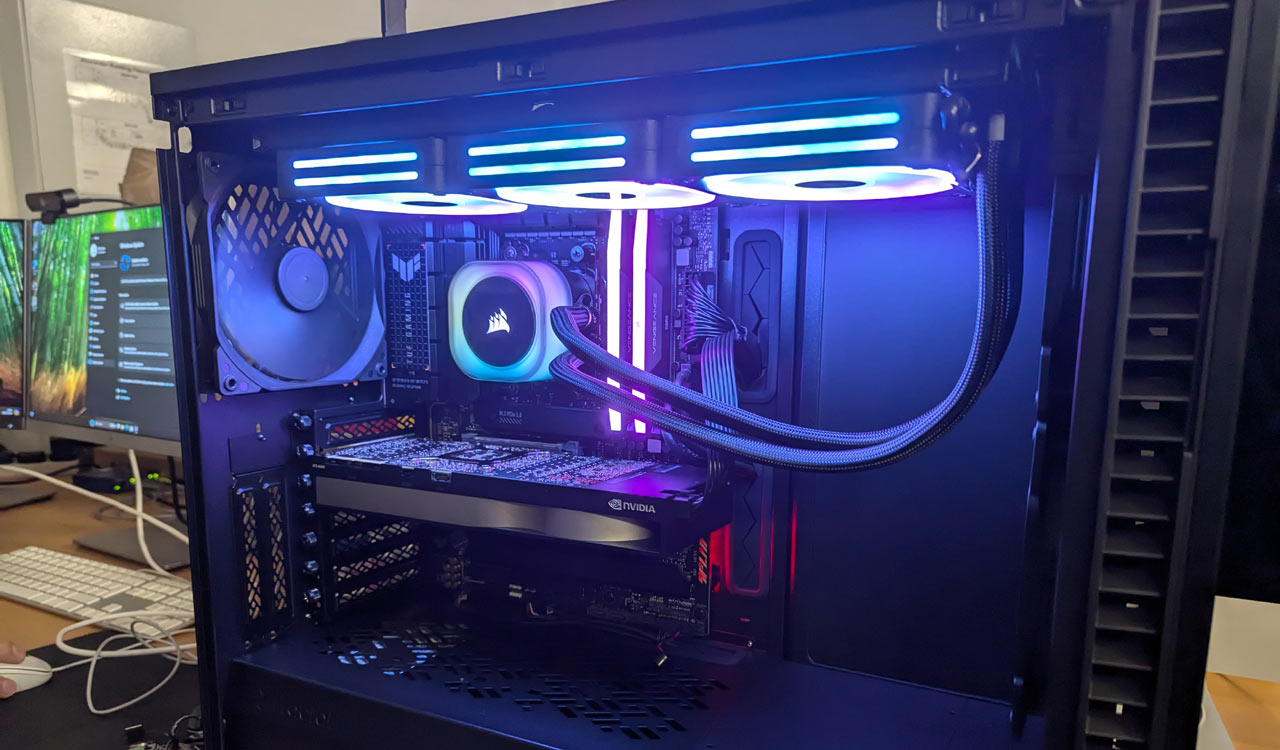CPU Wars: AMD’s dominance set to continue?
Problems persist with Intel’s 13 & 14th gen while the Ryzen 9950x improves

Hyderabad: The annual showdown between Intel and AMD has been easy to track for most PC gaming aficionados, as they’ve traditionally compared the chips from both manufacturers based on the number of cores, threads, and price.
This often helps determine which delivers the most power, the best value per rupee, and, at times, the most future-proofing for gaming rigs. For example, you might compare Intel’s latest generation i9 (13th, 14th) with the contemporary Ryzen 9 variant (5950X, 7950X), or the i7 with the Ryzen 7.
While the core and thread counts may vary slightly between the two, you could typically find an alternative CPU for every type of build. However, this year the comparison is far more complex with the introduction of AI chips and Intel’s launch of its Meteor Lake processors under the ‘Core Ultra’ moniker.
When comparing the gains from AMD’s 9000 series chips to the 7000 variants, it’s important to note that Team Red has shifted focus toward power efficiency and AI task performance, particularly with LLMs like Llama. By enabling full PCIe Gen-5 storage and providing 16 PCIe lanes for graphics, AMD claims that their chips should be up to 20% faster for complex AI and LLM tasks.
Over the past week, I had the opportunity to benchmark the Ryzen 9 9950X and compare it to a variety of processors. The results were impressive, with a single-core score of 3407 and a multicore score of 20,775 on Geekbench at its base frequency of 4.3 GHz. This puts it ahead of the i9-13900KS in single-core performance (3135/21735) and also slightly surpasses the i9-14900K in multicore performance (3082/20727).
While Geekbench numbers suggest that Intel’s 13th and 14th gen i9 processors are within touching distance of AMD’s latest chips, it’s important to highlight the well-documented instability issues plaguing Intel’s recent offerings. The 13th and 14th gen i9 chips have faced significant stability problems, and Intel has struggled to provide replacements or even diagnose the issue in a timely manner.
In terms of power consumption and efficiency, AMD’s 9000 series chips appear to run cooler than the 7000 series (by about 6-7 degrees) and are reported to draw nearly 40W less power while performing the same tasks. If the new processors from Ryzen, built on TSMC’s N4P process, run cooler, deliver higher computing power, and consume less electricity, this combination seems like a win for gamers looking to upgrade their rigs this year.
On the other hand, if leaks regarding Intel’s upcoming Core Ultra 9 285K (2nd gen Core Ultra) are accurate, it is expected to be slower than the i9-14900K when it comes to gaming. This potentially offers a clear opportunity for AMD to solidify its lead, especially when its 3D V-Cache variants of the 9000 chips arrive.
In Geekbench tests, it’s worth noting that the top-of-the-line MacBook pro with the M3 Max processor offers a mind-blowing single core score of 3239 and a Multicore score of 21201. This makes me dream once again what ‘Cyberpunk 2077’ or ‘Avatar: Frontiers of Pandora’ would feel like on a Mac M3 or M4 processor.
- Tags
- 3D V-Cache
- AI tasks
- AMD
- Core Ultra
Related News
-
Cartoon Today on December 25, 2024
5 hours ago -
Former Home Secretary Ajay Kumar Bhalla appointed Manipur Governor, Kerala Governor shifted to Bihar
6 hours ago -
Opinion: The China factor in India-Nepal relations
7 hours ago -
Editorial: Modi’s Kuwait outreach
7 hours ago -
Kohli and Smith will be dangerous and hungry: Shastri
8 hours ago -
Sharvari shares her TBR list of romantic book titles, suggested by fans
8 hours ago -
Khammam Congress gaffe: Union Home Minister Amit Shah made ‘Defense Minister’
8 hours ago -
Couple held for theft in Hyderabad
8 hours ago




